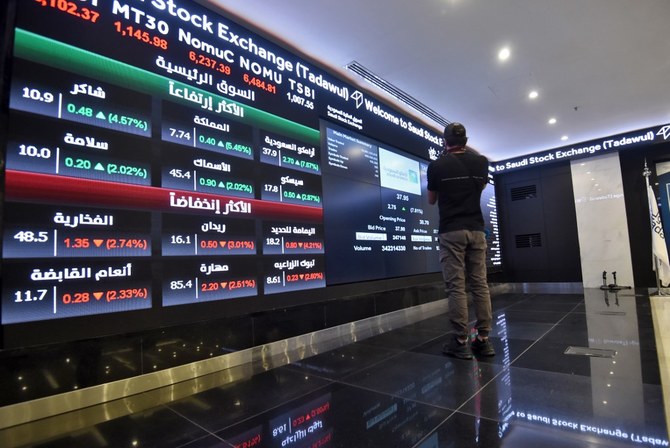
- ARAB NEWS
- 19 Apr 2024

Frank Kane
Saudi Arabia has risen two places in the annual world competitiveness rankings calculated by the Swiss-based International Institute for Management Development (IMD).
The rise - from 26 to 24 position out of 63 countries ranked in the prestigious report - reflected a surge in the value of the Kingdom’s stock market after the record listing of Saudi Aramco last year, as well as a positive view by global business executives of its economic dynamism, policy stability and reliable infrastructure.
Arturo Bris, director of the IMD centre, told Arab News that Saudi Arabia was “doing competitiveness by the book”, and praised the Vision 2030 strategy for making the Kingdom’s economy more competitive.
“Five years ago, Saudi Arabia was in the bottom ten in the world for competitiveness, now it has reached number 24. Vision 2030 has written the competitiveness playbook, and is a case study for the rest of the world,” he added.
The rankings are calculated on economic data relating to last year, before the global COVID-19 pandemic struck, but also takes in the views of business executives surveyed between February and April this year, when the Kingdom and the world was in the middle of economic lockdown.
IMD warned that Saudi Arabia faced challenges this year, including the need to “raise the regional competitiveness within Saudi Arabia to align with Vision 2030 goals.” It also had to “continue the strategic government initiatives to mitigate economic loss during the Covid-19 pandemic.”
Bris said that the pandemic was going to have a big impact on Saudi Arabia coming as the process of diversification away from oil dependency was still underway, and that much depended on the response of policymakers to the economic impact of the crisis.
“I am not sure that the new tax rules are a move in the right direction. Liquidity injections into the banking system are positive initiatives, but they do not necessarily transfer into more competitiveness,” he added.
Saudi Arabia had big advantages over many countries in the form of big financial reserves and low indebtedness, which gives it the capacity to raise funds on global capital markets.
“Saudi has huge horsepower in its ability to raise debt and on reserves. The purpose of a sovereign wealth fund is to support the sustainability of the economy for future generations,” Bris said.
Weaknesses perceived by executives in the Saudi economy in 2019 included relatively low-income growth per capita, and continued over-reliance on oil as is main export, the IMD survey found.
Singapore came top of the global rankings for the second consecutive year, followed by Denmark and Switzerland. The USA fell seven places to 10th, one slot below the UAE, which was the top-ranking Middle East country.